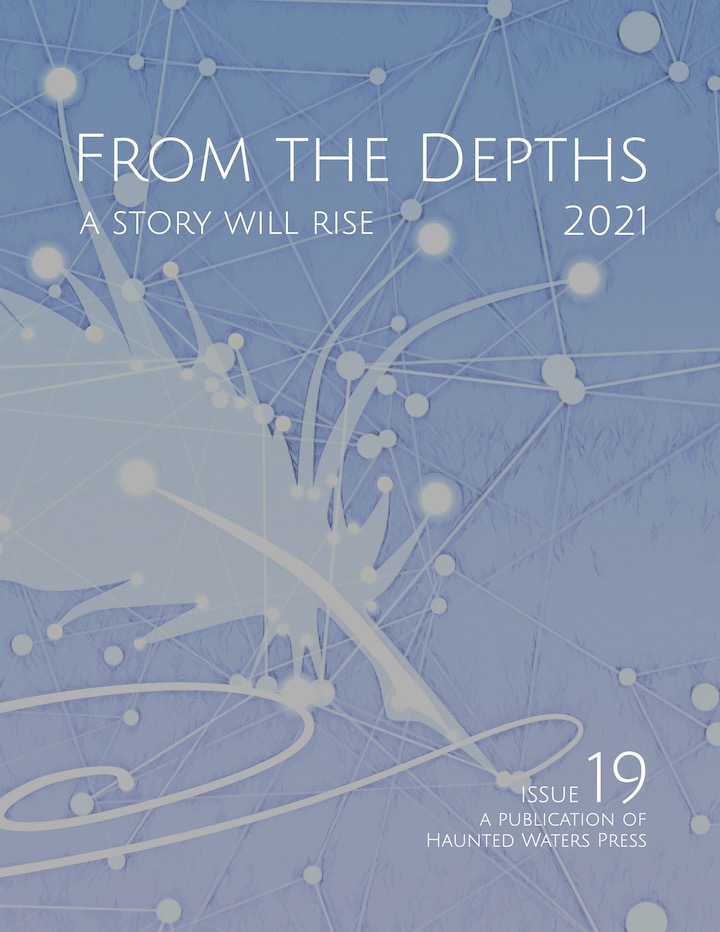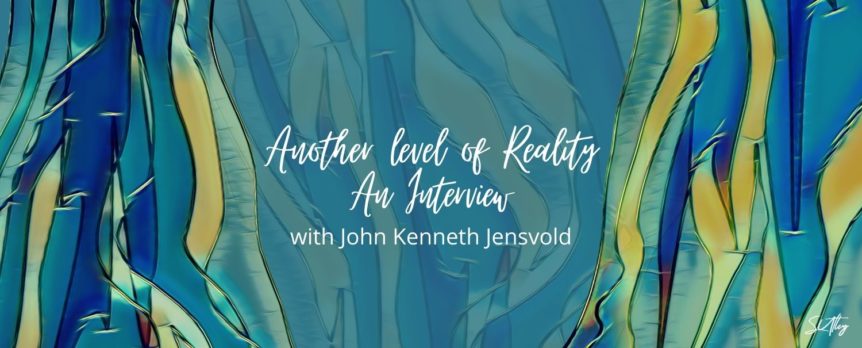An Interview with John Kenneth Jensvold
Thank you for joining us for another Haunted Waters Press Featured Author Interview. In this series, we sit down with contributors to chat about their craft and explore the experiences that have shaped their writing.
Today's interview is with HWP Contributor John Kenneth Jensvold. We first spoke with John following publication of his short story Cap Gun in Tin Can Literary Review, Volume One. Today John joins us to discuss his short story Guadeloupe showcased in the 2021 issue of From the Depths. Enjoy!
2021 was especially rewarding for me since Haunted Waters Press chose to publish two of my stories. Since then, I have been devoted to completing my first novel, Until the Big Water Takes Them. It’s a story about a second-generation family from Minnesota’s Iron Range who try desperately to hang on to a historic resort on Lake Superior against mounting odds. The novel is now in draft form, and I’m into the editing process. It will be looking for a home next summer.
Your short story Guadeloupe recently appeared in the 19th issue of From the Depths. What was the inspiration behind this story?
For Guadeloupe, the initial inspiration was really triggered by my long love of the Caribbean; the sea, the islands, and the indigenous peoples. And, since I'm personally fascinated by personal transformation—whether healthful or destructive or both—I wanted to place unlikely characters in a wholly foreign environment, with them freely taking risks they don't fully fathom. At its core, it's a story about how humiliation can unlock one's soul under the right conditions. The conditions are just right on Guadeloupe.
Mystically transforming black letters on a white page into a lasting memory for one reader is the greatest success of all.
—John Kenneth Jensvold
Tell us about the writing process. How did this story evolve?
Once I have a trajectory for the story in mind, I always go into research mode. I have the same goal in mind always. Should a reader later actually visit the place I'm describing, I want it easily recognizable for them. I want the geography, weather, buildings, sounds, smells, everything—all authentic. As a writer, authenticity gives me confidence that the characters will have integrity as they push back on their surroundings. That said, I would make the world's worst fantasy writer. I want to challenge my readers, if not scare them a little, but everything has to make perfect sense in the end.
What part of the writing process exhausts you? What do you find energizing?
The only thing remotely exhausting about the writing process is waiting for decisions that are well beyond my control. The writing itself, I would say, is singularly energizing. There is a point in every project, at least with me, where the characters "turn the corner." By that, I mean they move into another level of reality where I can easily hear their individual voices and their memories start to open up for me. Now, before you recommend a good therapist, I already know how it sounds, but it has become the central feature of my writing process, just the same.
Describe the most difficult "scene" you have ever written.
My first published short story was in Alligator Juniper (Prescott College, AZ) and was called The Same Prairie Grass. In it, there is a first-person account of a young white man named Harry Haller who accepts an invitation to participate in a sweat lodge ceremony with a Dakota medicine man. I personally lived this event and decided to include it in my story intact. The experience was life-altering for me in important ways. I've always felt that I betrayed the Tribe by revealing too much in that story. I keep waiting to be called out for it.
Thinking back to your first published piece, did publication change your writing process or goals?
Like so many others, I’ve received plenty of rejections over the years. My original goal was simply to get something in print, as some brand of personal validation, I think. That’s changed over time, and my focus today is on improving as a writer and thinker every day. Here’s what has really surprised me: So many publishers, whether they accepted my work or not, have freely given suggestions and critiques when they didn’t have to. I truly feel that I have accumulated a mountain of benefits from taking in the advice offered by these professionals. It continues to be a gift in my life. In terms of process, I plan and structure stories much more today than I did in the beginning – for me, it accelerates the pace of writing substantially. In the beginning, I just poked around until the plot started to come together.
Are you part of a writing community, or is it more of a solitary craft?
Groucho Marx used to say that he wouldn't join a club that would have him as a member. I think that applies to me too. I'm a solo act, aside from the welcome criticism from publishers. This may have to change with my upcoming novel because the road to novel publication is a whole different animal. I distinctly remember tapping away at my very first story. I was completely clueless about what to do with it if I ever finished. I feel like that again.
What have you been reading?
I always have a book going, and I seem to alternate between fiction and history. Right now, I'm reading The Splendid and the Vile by Erik Larson. It delves into the early years of World War II, mostly from Winston Churchill's perspective. Many people today don't recall how close our world came to the brink of disaster after the fall of France. My interest in World War II stems from the fact that my father, Ken, was a B26 bomber pilot and squadron leader in 1944-45, flying over Europe. He was a veritable walking history book on the subject. Before the Larson book, I read True North by Jim Harrison who is my favorite author. Harrison's books leave scars on you.
When you take a break from writing, what can we find you doing?
I work full-time (and then some) so my writing to confined mostly to weekends. My wife and I have been together for 32 years and thankfully have so many shared interests that break taking is a sheer joy, including getting out on our boat in the summer months (an 18 foot Sea Ray that is perfect for Minnesota lakes) and finding new restaurant gems on our travels.
How do you define success?
After Cap Gun came out in Tin Can Literary Review, I got a call from an old friend of mine who lives on a farm in rural Nebraska. After reading the story, he said he knew the main character, a little boy named Owen Martin. He told me that Owen was as real to him as the kids he grew up with, maybe even more so. Mystically transforming black letters on a white page into a lasting memory for one reader is the greatest success of all.


Lightning Round with John Kenneth Jensvold

ABOUT THE AUTHOR
John Kenneth Jensvold has two lives, one constructing buildings and another building stories. He helps to lead one of the largest minority-owned general contracting firms in the country - Shaw-Lundquist Construction. As a result, his fiction often has elements of buildings and architecture that help fuse his two vocations and preserve his sanity. John holds an undergraduate degree from St. Olaf College and a MBA from the University of St. Thomas. John and his wife Madeline have three adult daughters who make them proud and exasperated, depending on the day.
Share this Post


Comments
I appreciate authors who share the serious aspects (secrets) of their writing life infused with the practicality of personal life lessons with gentle humor mixed in. “Lighting Round’ is always fun!